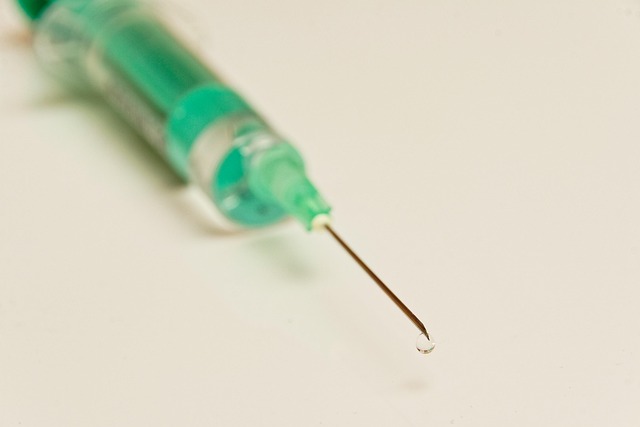Knee joint steroid injections provide temporary (weeks to months) anti-inflammatory relief for arthritis and tendonitis, lasting based on patient health, injection factors, and condition severity. Multiple injections may be needed for long-term pain management, but they are not a permanent solution. Always consult a healthcare provider for personalized expectations and guidance.
Corticosteroid joint injections are a common treatment for knee pain, offering relief and reduced inflammation. Understanding their duration of effectiveness is crucial for managing expectations. This article delves into the factors determining how long knee joint steroid injections last, exploring their impact on pain management and providing insights into when repeated treatments may be necessary. By understanding these dynamics, patients can make informed decisions regarding their treatment options.
Understanding Corticosteroid Joint Injections
Corticosteroid joint injections are a common treatment option for individuals suffering from knee pain and inflammation associated with conditions like arthritis or tendonitis. These injections offer a powerful anti-inflammatory effect, providing rapid relief and reducing joint stiffness. The corticosteroids used are powerful anti-inflammatory medications that are injected directly into the affected knee joint. This direct application allows for maximum concentration of the medication at the source of discomfort, making it an effective treatment for many patients.
Understanding the duration of their effectiveness is crucial for managing patient expectations. Generally, the relief from a single injection can last anywhere from several days to several weeks, depending on various factors such as the severity of the condition and individual response. In some cases, multiple injections may be recommended at intervals to maintain long-term pain relief and improve overall joint health.
Duration of Effectiveness in Knee Joints
The duration of effectiveness from knee joint steroid injections can vary significantly based on several factors, including the individual’s overall health and the specific type of injection administered. On average, patients may experience pain relief and improved mobility for anywhere between 2 to 6 months after a single injection. However, this window can extend longer in cases where smaller, repeated doses are given over time, offering a more prolonged period of comfort.
The effectiveness also hinges on the underlying condition causing joint pain. For conditions like arthritis or tendinitis, these injections can provide substantial and lasting relief. In contrast, injuries might require more frequent treatments to maintain symptom alleviation. Patients should consult their healthcare provider to understand what to expect based on their unique circumstances regarding knee joint steroid injections.
Factors Affecting Injection Lifespan
The duration of effect from corticosteroid joint injections can vary greatly depending on several factors, including the specific location of the injection and the individual’s overall health. In general, knee joint steroid injections can provide relief for several weeks to even a few months. The rate of breakdown and absorption of the steroids varies between different joints, with softer joints like the knees typically showing faster deterioration compared to stiffer ones like the shoulders or hips.
Other factors influencing the lifespan of the injection include the dosage of steroids administered, the patient’s age, their medical history, and whether they have received previous injections at the same site. Active inflammation levels in the joint can also extend the effectiveness of the injection. It’s important to remember that while these injections offer a significant respite from pain and inflammation, they are not considered a long-term solution for arthritis or other joint conditions.
When to Consider Repeated Treatments
If you’re considering knee joint steroid injections, it’s important to understand that their effectiveness can vary from person to person and the duration of relief they provide isn’t always permanent. These injections typically offer significant pain relief for several weeks, sometimes even months. However, the exact timeframe can depend on factors like the individual’s overall health, the severity of inflammation, and how well their body responds to corticosteroids.
Repeated treatments may be necessary if symptoms return or persist after an initial round of injections. It’s crucial to discuss your concerns and treatment options with a healthcare professional. They can assess your condition, determine if additional injections are suitable for you, and provide guidance on managing joint pain over the long term.
Corticosteroid joint injections can provide significant relief for knee pain, lasting anywhere from several weeks to months. The duration of effectiveness depends on various factors, including the severity of inflammation and individual patient response. Understanding these variables helps healthcare professionals tailor treatment plans. Regular follow-ups are essential to assess the injection’s efficacy and determine if repeated treatments are necessary for sustained joint health and comfort. For those seeking long-term relief from knee joint steroid injections, consulting with a medical professional is crucial to explore the best course of action.
